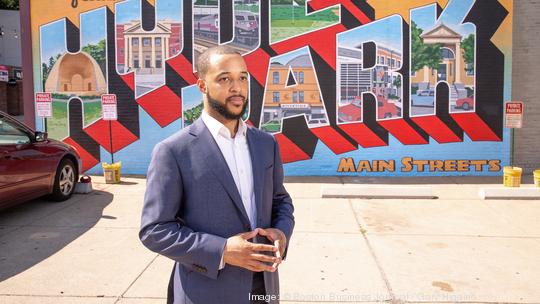
Entrepreneurship is "under threat," and the health of the state's startup sector depends on building a diverse and inclusive ecosystem, according to a new report.
"Despite 12 seasons of 'Shark Tank' and all of the media attention surrounding innovation of late, the number of new startups is down sharply throughout the United States," said the report, which was produced by the think tank MassINC in partnership with the Coalition for an Equitable Economy.
In Massachusetts, between 2005 and 2018, the annual number of new companies fell by nearly half, the report added. "While these data largely reflect dramatic decline after the Great Recession, studies indicate the rate of new startups in Massachusetts has been in decline since the late 1970s. The attention-grabbing innovation in and around Boston draws attention away from this troubling pattern."
Industry consolidation is among the trends driving the reduction in startup activity, but there are also demographic changes underway, according to the report, which was funded by Eastern Bank. "While the number of minority-owned businesses is rising quickly, this growth is from a very low base."
White workers are more than twice as likely to own a business incorporated in Massachusetts, the report said. "If we do not substantially increase rates of business ownership among residents of color, the number of new startups will fall ever more sharply in the future."
The Boston Foundation is hosting a 10 a.m. online-only event highlighting the release of the report, titled "Unleashing the Potential of Entrepreneurs of Color in Massachusetts."
Centralizing support
The report is the first in a series as the coalition seeks to share strategies to reduce racial and ethnic disparities in local entrepreneurship. Made up of a group of local business leaders, the coalition aims to pull together the pandemic response efforts many of its member groups had initiated, in order to improve their reach and maximize their impact on the state's business sector.
"With a united network of resources, contacts, and support systems, we not only enhance the efficiency of each organization, but also support a greater number of small businesses, helping to close the racial wealth gap in Massachusetts," said Segun Idowu, member of the coalition and president and CEO of the Black Economic Council of Massachusetts.
The report said racial and ethnic disparities in entrepreneurship have compromised equitable development for years, but they were exacerbated by the overwhelming impact Covid-19 closures had on minority businesses.
It argued that investing in strategies to diversify business ownership is not only necessary to work towards a more equitable community, but would contribute to maintaining local innovation and economic growth.
The report suggested three ways to create more minority entrepreneurs: building skills and relationships through technical assistance programs; improving access to capital during early stages of business development; and increasing access to markets and customers minority businesses have yet to break into.
"Massachusetts needs accelerator programs specifically designed to serve entrepreneurs of color in high-growth industries, particularly in sectors such as cannabis, clean energy, and fintech, where communities of color have experienced injustice or remain disparately exposed to potential harm," the report added.
The report’s proposals include expanding the Massachusetts Small Business Technical Assistance grant, setting diversity benchmarks for crowdfunding matching grant programs, and creating a new grant to strengthen organizations that support entrepreneurs of color.
Bridging a wealth gap
Opening the doors for minority entrepreneurs to succeed in Massachusetts would help bridge the wealth gap that exists between white residents and minorities in the state, the report said.
The coalition "will activate this blueprint for building inclusive entrepreneurial ecosystems, and continue to provide coordinated action, research, and leadership to revitalize our small business ecosystem and enhance racial equity in Massachusetts’ economy,” said Betty Francisco, a member of the coalition, and co-founder of Amplify Latinx, as well as general counsel for Compass Working Capital.
The coalition plans to release a second report in May. Titled “The Color of the Capital Gap,” the report will seek to expose disparities in access to capital among local minority owned businesses, and suggest strategies to minimize this gap in funding, according to the coalition.








